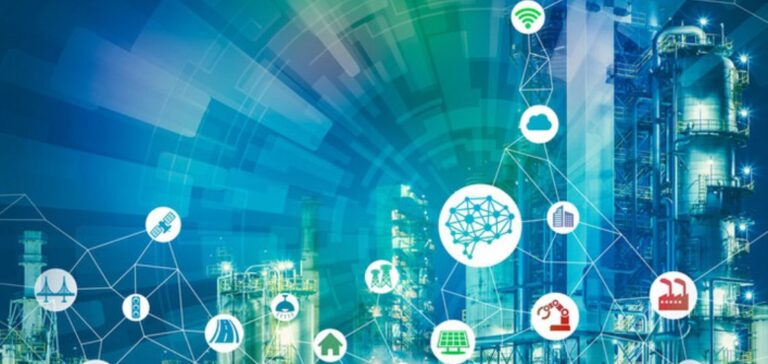Clever sensors to reduce the energy requirements of machines, less polluting concrete or tools to track CO2 emissions: far from being confined to ChatGPT, can artificial intelligence (AI) also help to decarbonize? That’s the challenge facing many companies.
AI and industrial decarbonation: unexpected allies in the fight against climate change
In the aisles of climate change conferences, it’s no longer uncommon to come across startups boasting about their ability to measure and reduce emissions: the American Watershed, the German Carbme, or the French Greenly, which analyzes corporate activities to translate and quantify them in terms of greenhouse gases. Beyond ChatGPT, which has made headlines in recent months, the applications of AI are infinitely numerous, notably to bring greater traceability, a major element in decarbonization.
In this context, AI can play a major role, says Geoffroy Petit, a specialist in the subject at BearingPoint. “One of its contributions is its ability to reconstruct part of the data, projecting it to provide estimates of product-related emissions that are as accurate as possible,” he explains.
While it’s easy for companies to know what they emit directly, it’s not so easy with indirect emissions (known as Scope 3), including those from their suppliers.
For example, AI could make it possible to say to companies: “What you’re doing to decarbonize your vehicle fleet is all well and good, but the issue with you is the business model that relies on thousands of products entering your warehouses, the carbon footprint of which you have absolutely no control over”, deciphers Léo Génin, environmental consultant for I Care, at BearingPoint.
AI for industrial ecology: reducing emissions, optimizing processes
This is no mean feat: according to a recent report by CapGemini, indirect emissions last year accounted for 92% of the total emissions reported by the European companies surveyed. But AI can also be used for other purposes, including improving manufacturing processes within a factory.
“Thanks to the data we collect, we can tell why we’re producing poorly or well,” says Paul Pinault, one of the directors of Braincube, a French company offering digital solutions to manufacturers.
Using millions of data points, we can assess which industrial processes will consume the least energy. – “Environmental impact” – A number of manufacturers have taken the plunge, such as France’s Suez with its Aquadvanced software, to help manage water networks.
Germany’s Siemens has developed software to measure emissions throughout the value chain. And the Gafams are getting in on the act: the American company Meta collaborated with the University of Illinois last year to design an algorithm to create concrete that is more frugal in emissions.
Beyond decarbonizing processes and products, AI can also help companies’ decision-making processes. For example, should a company demolish a building and rebuild it with greener materials, or reuse part of the site and rebuild the other part with recycled materials? Does the future of the planet depend on artificial intelligence?
Digital technology and CO2 emissions: the two sides of the technological revolution
This would be to overlook the fact that the digital sector accounts for 3% to 4% of greenhouse gas emissions worldwide, according to a report by the French Agency for Ecological Transition (Ademe) and the French telecoms regulator Arcep. In other words, the potential solution is also part of the problem.
“The question of the return on investment, from an environmental point of view, of these digital infrastructures in relation to the benefits and promises induced remains something of an open question at the present time,” Léo Génin points out.
And companies still need to be willing to implement these tools, with potential additional costs in the short term. Specialists nevertheless point to a change in mentality, albeit a slow one.
“Previously, companies would contact us and say: +I have a quality problem to solve in my factory+. Today, they say: ‘I have a quality problem and I also want to measure my environmental impact'”, says Paul Pinault.
The best incentive would still be to make the environment rhyme with savings.
“When you combine the financial and climate aspects, companies make decisions much more quickly,” says Geoffroy Petit.






















